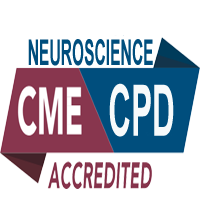Lenka Maruscakova,
Comenius University, Slovakia
Title: Immunological aspects of glioma tumorigenesis
Biography
Biography: Lenka Maruscakova,
Abstract
Immune cells and molecules in tumor microenvironment are crucial in tumorigenesis. Inflammation is known as one of hallmarks
of cancer and is considered as an protumorigenic factor. Glioma tumor microenvironment glioma still needs deeper insight into its
immunological characteristics. Both local and systemic chronic low grade inflammatory response are operative for correlation with
gliomas grading and their prognosis. Complex network of immune signals and pathways is in intricate background of most of cancer
hallmarks. This concept is an intersection of three huge research fields: immunology, oncology and neurology. Cancer immunology
has a perspective in complex approach to diagnosis of gliomas. There is an appealing importance of establishing immune molecules
in gliomas. TREM-1 (Triggering receptor expressed on myelocytes) is an inflammation amplifier, hovewer its role in glioma remains
still unclear. The aim of our study is to establish the expression of TREM-1 in glioma tissues and to correlate it with staging, grading
and other laboratory parameters. Establishing of TREM-1 expression could have a promissing role in pathophysiology of gliomas.
Our preliminary results show densely infiltrating TREM-1+ immune cells in tumor tissue. At signal pathways level, inflammation is
interconnect with molecules related to hypoxia. Cross-talk of inflammation and hypoxia becomes more obvious in glioma as well.
Consideration of relations dynamics is also necessary. But, deep understanding of their signal network in glioma tumorigenesis
is challenging. Our aim is to provide critical view on our pivotal results in framework of data from literature and discuss their
significance for deep understanding of glioma tumorigenesis.

